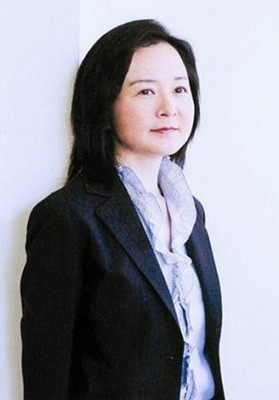新晋日本小说
Slightly off A haunting introduction to the work of an important Japanese author
伤感自难忘—日本知名作家小川洋子作品的简略介绍
Revenge: Eleven Dark Tales. By Yoko Ogawa.
《复仇:十一个暗黑传说》,作者小川洋子;
AN ELDERLY man who curates a museum of torture. A landlady who grows carrots shaped like hands. A woman who buys a birthday cake for her dead son. The odd stories of Yoko Ogawa, a Japanese author, irrupt into the ordinary world as if from the unconscious or the grave. “Revenge”, the latest collection to be translated into English, offers a short and haunting introduction to her work.
在传说中,年老的男人管理着收藏煎熬的博物馆,女房东种着人手形状的胡萝卜,妇女为死去的儿子购买生日蛋糕。日本作家小川洋子的这些奇特故事,仿佛从坟墓中破土而出或者由无意识逃逸而出,侵入正常的世界。《复仇》,作为小川洋子最新一本被翻译为英文的合集,让我们可以一窥其作品那萦绕其中的美丽哀伤,经久难忘。
Nameless narrators describe strange and often shocking encounters in cool, almost ordinary language. The characters suffocate, are stabbed to death, die crushed by the detritus of the world. Ms Ogawa has said her work is influenced by Haruki Murakami's magical-realist style. There are fantastic flashes, such as a woman born with a heart outside her body. Yet the overall effect is more David Lynch: the rot that lurks beneath the surface of the world.
佚名叙述者描述了离经叛道甚而多是骇人听闻的故事,用语却是冷淡,或可以算上平常的语句。故事人物或死于窒息,或被刺而亡,或被尘世碎石压碎而亡。小川女士曾说过,她的作品深受村上春树魔幻现实风格影响。奇异画面闪烁作品其中,如一位妇女与身体之外的心共降临于世。然而整体效果其实更像大卫·林奇的现实主义:发掘潜藏在世界表面之下的腐烂。

Ms Ogawa has written more than 20 books and won every big literary prize in Japan. The English translation of her novel “The Housekeeper and the Professor” in 2009 brought her attention and success in America. Publishers keen to spot the next Murakami have now released four of her books in English. Her translator, Stephen Snyder, describes her work as remarkably diverse.
小川女士已著有20本书,并包揽了每一个日本文学大奖。2009年,她的小说《女管家和教授》的英译版让她在美国赢得了巨大的关注和成功。那些热衷寻找下一位“村上春树”的出版商已经出版了四本她的小说的英译版。她的译者,斯蒂芬·斯奈德认为小川洋子的作品极其与众不同,独一无二。
Her novels range from tender to sadomasochistic; her stories are more straightforwardly disturbing. This weird otherworldly quality is deeply Japanese, says Mr Snyder. It is in part a reaction to the glassy perfection of this self-conscious society. Ms Ogawa's fiction considers what is out of place. She is less concerned with brutality than with loss and absence.
她的小说文笔波诡,基调可由温柔细腻转至施虐受虐,更多是直截了当的让人烦躁不安。斯奈德先生认为,这种奇异,难以理解,超脱世俗根植于日本。这种风格是小川女士对这个过于关注他人评价的社会,缠绕其间那如玻璃般的完美的反应。小川女士的小说关注的是那些和完美世界格格不入的东西。她不是为了书写残酷故事而创作,迷失和缺席才是她更加关心的事。
Yet there is a steadying effect in her stories through repeating motifs—a classic technique of Japanese poetry. Rotting food and body parts recur; actors in one story reappear obliquely in others. The result is a spectral connectedness. Ms Ogawa understands the consolation of order within apparent randomness. One story describes a dying man's cluttered house: “As I studied the mass more closely, I began to feel that it was not the product of random accumulation but that it actually had a coherent form all its own.”
通过重复主题这一经典的日本诗歌技巧,她的故事有种稳定的效果。正在腐烂的食物和尸体反复出现,在一个故事出现的角色会在另一个故事里间接地出现,这些都是冥冥之中早注定。表面杂乱无章,小川女士却深谙顺序的艺术。她有个故事,描述了一个将死男人,凌乱不堪的房间。 “当我对于“乱”有更深的理解,我开始意识到它不是随意积累的产物,而事实上,它有着自己条理性的形式。”













